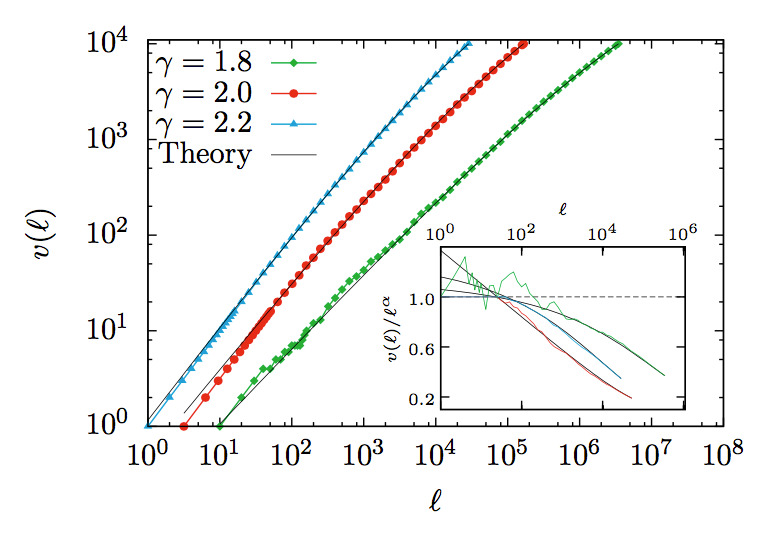Log-log convexity of type-token growth in Zipf’s systems
Published:
F. Font-Clos, A. Corral, Phys. Rev. Lett. 114, 238701
Download PDF here

Abstract: It is traditionally assumed that Zipf’s law implies the power-law growth of the number of different elements with the total number of elements in a system—the so-called Heaps’ law. We show that a careful definition of Zipf’s law leads to the violation of Heaps’ law in random systems, with growth curves that have a convex shape in log-log scale. These curves fulfill universal data collapse that only depends on the value of Zipf’s exponent. We observe that real books behave very much in the same way as random systems, despite the presence of burstiness in word occurrence. We advance an explanation for this unexpected correspondence.
